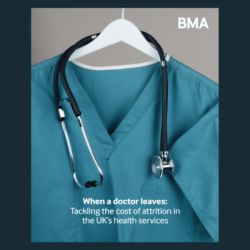A recent study published in the American Journal of Infection Control showed that staff shortages and the extra burden on hospitals caused by the COVID-19 pandemic could increase the number of acquired infections and threaten patient care.
The study examined hospital-acquired infections at two hospitals in Illinois between September 2017 and December 2020. Significant increases in hospital-acquired infections were found in both hospitals during COVID-19. Hours worked per patient and premium pay hours increased during COVID-19. The rates of hospital-acquired infections correlated with premium pay and the total number of hospital staffing agency hours. Thus, the reliance on travelling nurses is associated with increased infection rates.
Previous studies have shown that patients in COVID-19 designated units have a higher incidence of hospital-acquired infections than non-COVID-19 units. Infections increased with non-permanent staff, float nurses, and overtime hours. Regarding enacting policy changes that can address this issue, this study offers insight other than just increasing surveillance. The study highlights that the staff need proper training and education in place. Furthermore, infection preventionists should be able to audit and partner with clinical staff to reduce infection rates.
The study authors concluded: ‘Elevated consideration to adherence of system bundle parts, system necessity and observations of practices together with hand hygiene and cleansing ought to happen, notably throughout a pandemic surge when employees are flexed to work in alternate places or when improve in company employees are utilized.’
Source: American
Journal of Infection Control
Image Credit: iStock

























